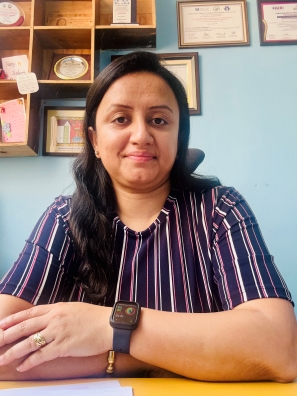| Faculty (Department Wise)+ |
|---|
| ----------------------------- |
| Chemical Sciences > |
| Pharmaceutical Analysis > |
| Biological Sciences > |
| Pharmaceutics > |
| Pharmaceutical Management > |
| Medical Devics > |
| Natural Products > |
| Regulatory Affairs > |
| Pharmacoinformatics > |
| ----------------------------- |
| Young Scientists > |
| Guest Faculty > |
| ----------------------------- |
| Staff + |
| ----------------------------- |
| Technical Staff > |
| Administrative Staff > |

Our research group is dedicated to a comprehensive investigation of infectious diseases, with a primary focus on protozoan parasites such as Leishmania donovani and the ESKAPE pathogens. This research integrates a multidisciplinary approach, leveraging microbiology, immunology, genomics, and computational biology to address critical challenges in infectious disease management. A fundamental aspect of our work is the continuous surveillance of antimicrobial susceptibility in clinical isolates of these pathogens. This ongoing monitoring is crucial for detecting emerging drug-resistant strains and deciphering the underlying molecular mechanisms driving resistance. By exploring the genetic and biochemical adaptations that allow these pathogens to evade treatment, we aim to inform more effective therapeutic strategies. To achieve a deeper understanding of host-pathogen interactions and potential drug targets, our group employs advanced multiomics approaches. Analyzing the host epigenome enables us to identify gene expression changes that contribute to disease progression and resistance. Simultaneously, our investigation into the genomic and proteomic profiles of these pathogens facilitates the discovery of novel drug targets, essential for developing next-generation therapeutics.
A key strength of our research lies in computational biology, which plays a pivotal role in accelerating drug discovery and therapeutic innovation. By utilizing molecular docking, virtual screening, and molecular dynamics simulations, we can efficiently identify potential drug candidates and explore opportunities for drug repurposing. These in silico techniques enable the rapid screening of extensive chemical libraries, significantly streamlining the drug discovery pipeline. Recognizing the limitations of conventional antibiotic-based treatments, our lab is also pioneering host-directed therapeutic strategies. By targeting host factors that are critical for pathogen survival and virulence, these approaches offer a promising alternative to traditional antibiotics, potentially mitigating the rise of multidrug-resistant infections.
Within the Department of Pharmacoinformatics, this research holds particular significance, as it exemplifies the integration of computational and experimental methodologies in drug discovery and resistance surveillance. Pharmacoinformatics serves as a powerful tool in understanding complex biological interactions, predicting drug efficacy, and optimizing therapeutic interventions. By combining experimental microbiology with cutting-edge computational modeling, our group contributes to the advancement of precision medicine approaches in infectious disease research. Our work not only enhances our fundamental understanding of pathogen biology and resistance mechanisms but also drives the development of novel, targeted treatment strategies, reinforcing the role of pharmacoinformatic in modern biomedical research.